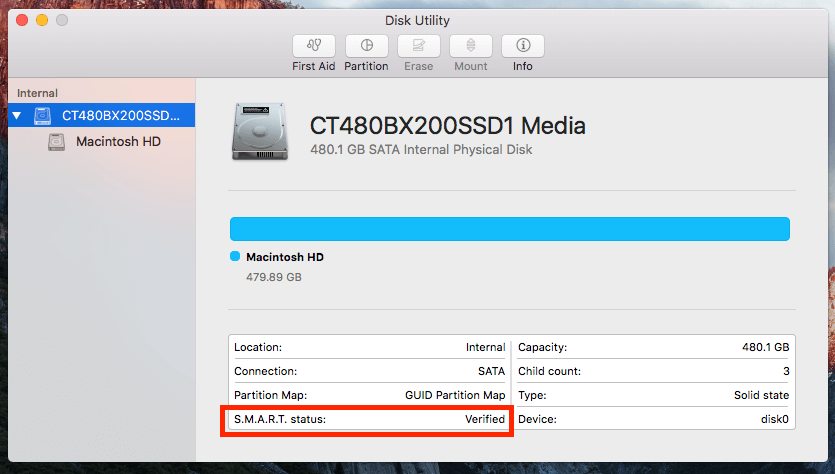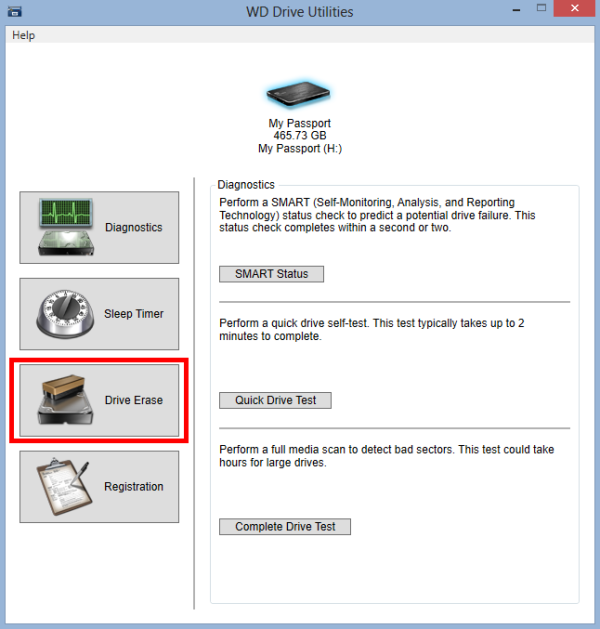

- #Smart utility hard drive how to#
- #Smart utility hard drive software#
- #Smart utility hard drive trial#
Now you know how to check your hard drive's health, you may want to check out our guide on cloud storage vs external hard disk drive to see if ditching your drive may be the better option.
#Smart utility hard drive trial#
Instead, you're going to need to clone your drive, using a program such as EaseUS Todo Backup, which has a free version for Windows (opens in new tab) or a paid version with a free trial for macOS users (opens in new tab). However, if you have any programs installed or system info you'd like to be brought across, this is likely to be left out if you choose this method. The easiest way to do this would be to simply copy/paste or drag everything from the disk to the second one, which is the best method if your disk only contains media files such as songs or movies. It's also worth checking whether your data has already been backed up in the cloud, since Windows' OneDrive and macOS' iCloud both offer these services, which you may not have realized were turned on.Īlternatively, if your connection isn't up to the task, or if you're racing against time before meltdown occurs, you may want to copy or clone your disk's contents to another drive. The easiest way to do this may be by using a cloud storage service, since this requires no additional hardware and is relatively simple. If, after running checks, you discover your drive is dying, what do you do? Well, the first thing you'll want to consider is how to backup all your data. If you'd prefer to go first-party, it's worth seeing if your disk manufacturer has its own tool, such as Western Digital's Drive Utilities (opens in new tab), or Seagate's handy SeaTools (opens in new tab). That's where standalone programs come in handy, which can offer more extensive info.įor Windows, CrystalDiskInfo (opens in new tab) is a free tool that can delve a bit deeper into your disk's status, while macOS users should take a look at DriveDX (opens in new tab), which costs $19.99 but comes with a free trial. tool is quick and easy, it doesn't do much beyond telling you whether your disk is fine or about to die. Note: This information won't appear if you're running a post-2015 machine with an SSD installed. status" section in the bottom-left, or by clicking the " i" icon in the top-right.

Click the drive you want to check, and its status will read either " Verified" or " Failing" in the " S.M.A.R.T. This product includes icons from Crystal Project, copyright 2006-2007 Everaldo Coelho Crystal Project icons are licensed under GNU LGPL.To do this on macOS, open the Disk Utility tool by going to Applications, then Utilities. See the GNU General Public Licenses for more details. This program is distributed in the hope that it will be useful, but WITHOUT ANY WARRANTY without even the implied warranty of MERCHANTABILITY or FITNESS FOR A PARTICULAR PURPOSE.
#Smart utility hard drive software#
This program is free software: you can redistribute it and/or modify it under the terms of version 3 of the GNU General Public License as published by the Free Software Foundation. GSmartControl is licensed under the terms of GNU General Public License Version 3. GSmartControl is Copyright (C) 2008 - 2022 Alexander Shaduri and contributors. Please see the Software Requirements page for more information. GSmartControl supports all major desktop operating systems, including Linux, Windows, macOS, FreeBSD, and other BSD-style operating systems.

Please see the Supported Hardware page for more information.

GSmartControl supports ATA drives (both PATA and SATA), various USB to ATA bridges, and drives behind some RAID controllers.


 0 kommentar(er)
0 kommentar(er)
